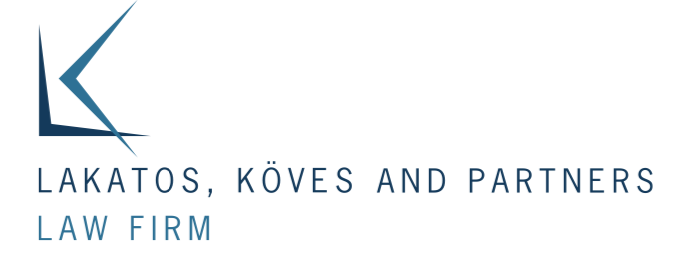Tracking the Ebb and Flow of FDI Into Hungary

Richard Lock, Founding Partner, Lakatos, Köves & Partners
As a law firm that has positioned itself to advise foreign investors concerning their activities in Hungary, we at Lakatos Köves & Partners are sensitive to the ebb and flow of sentiment towards investing in the country and also see, through the work that lands on our desks, what is actually happening that requires legal input.
Politically, Hungary may be more isolated than it has ever been in recent years, both because of its long-running disputes with its neighbors and fellow EU members and, most recently, because of its approach to the war in Ukraine. We have heard of Western European, U.S. and Japanese investors expressing concern about Hungary’s position regarding Ukraine, civil organizations, the LGBTQ-plus community, etc., and thus reluctant to make investments here.
Decisions on significant investments are taken with a long-term view. It often surprises people that Hungary ranks 17 in the Statista“globalization index,” down a few positions from 10 years ago but still only behind the Czech Republic among its regional peers. The investments today build on that existing track record, whether directly (i.e., in the expansion of a current investment) or indirectly, following the well-worn path trod by earlier investors.
Against that background, we see various areas of growth and opportunity and a number of significant risks.
The biggest story in Hungary for several years has been the automotive industry, which has a history going back decades and is now a significant component of the economy. That story continues with major investments in state-of-the-art factories and R&D facilities and, in particular, battery and automated driving technology. The Hungarian government’s “Opening to the East” policy is reflected in the high levels of Korean, Chinese and Japanese investments.
Important for the automotive and other sectors is the current rethinking of supply chains and the tendency of Asian manufacturers to establish plants in Europe to be closer to their continental customers. In that context, Hungary is considered well placed geographically; the labor force is relatively well-skilled and low-cost, and, for businesses, the tax regime is considered friendly with a low rate of corporate tax, no withholding tax, and significant tax incentives available for major investments.
Also, labor regulations are relatively employer friendly compared to Western European regimes. For several years, Hungary has been used as a holding company jurisdiction in many financing structures, but that position is threatened by the anticipated termination of the U.S.-Hungary double tax treaty at the end of 2023.
Advice Needed
The main areas in which we have seen a need for legal advice have included greenfield investments by players in the auto industry supply chain; significant real estate activity related to developments in supply chains (logistics parks etc.); transactions and work deriving from Hungary’s strong position in IT, both in terms of locally developed software startups and, in broad terms, players in the e-commerce scene, and lately, alternative clean energy projects.
Looking forward, Hungary faces the same challenges currently seen in other economies, some of which could present significant problems. If the decoupling between the United States and China continues, this will present considerable challenges to Hungary, which has cultivated a position as possibly the most welcoming economy in Europe towards Chinese investment.
The heavy dependence upon German investment means that difficulties faced by that traditional economic powerhouse will have a significant impact locally (already visible to us in some restructuring and insolvency work). The Hungarian economy is heavily dependent on EU funding, and it is (at the time of writing) unclear whether disputes between Budapest and Brussels on a range of issues blocking the release of EU funds will be resolved. Regulatory changes that are currently being proposed to address Brussels’ concerns, for example, the establishment of an “Integrity Authority” with the possibility of increased scrutiny of public contracts, could clearly, depending on how they will be implemented, affect the conduct of business.
Aside from the manufacturing activity referred to earlier, much of which is in foreign hands, many other areas of the economy (for example, services, utilities, and banking) are in the hands of local players financed by local banks, with both lenders and borrowers close to the government; the ability of these to weather a significant economic downturn is questionable.
We see a toxic mix of cronyism and corruption reflected in the tendency of prominent private equity players to steer clear of Hungary, put off by these perceived “country risks.” The use to which the FDI screening rules have been put in the last couple of years has done nothing to allay such concerns.

This article was first published in Investing in Hungary 2023 on December 16, 2022.
SUPPORT THE BUDAPEST BUSINESS JOURNAL
Producing journalism that is worthy of the name is a costly business. For 27 years, the publishers, editors and reporters of the Budapest Business Journal have striven to bring you business news that works, information that you can trust, that is factual, accurate and presented without fear or favor.
Newspaper organizations across the globe have struggled to find a business model that allows them to continue to excel, without compromising their ability to perform. Most recently, some have experimented with the idea of involving their most important stakeholders, their readers.
We would like to offer that same opportunity to our readers. We would like to invite you to help us deliver the quality business journalism you require. Hit our Support the BBJ button and you can choose the how much and how often you send us your contributions.





KOENIGSHOFER%20MICHAEL_3zu4_PRINT-CUT-SMALLER.jpg)
-SMALLER-CUT.jpg)


